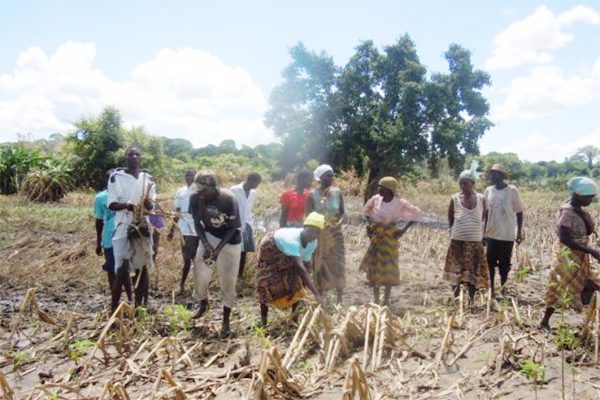
With new findings by the Greenhouse Gas Bulletin — the United Nations weather agency’s annual flagship report — a few days ago reporting that globally averaged concentrations of carbon dioxide (CO2) reached a record high of 403.3 parts per million [ppm] in 2016,up from 400.00ppm in 2015, the question of whether or not climate change is real is no longer a subject of debate. By Chipo Masara
The so-called “doomsayers” — the scientists who for years have been predicting disaster as a result of the scourge — have been proven right. Just like they warned, climate change is hitting developing countries like Zimbabwe the hardest. Ironically, it is those countries that have contributed the very least, if at all, to the natural catastrophe that are bearing the brunt in the worst way.
In Zimbabwe, proof of climate change is now there even for those that initially called it nothing but a hoax meant to cause pandemonium. The National Climate Change Response Strategy — developed by the government to look into climate change matters — has called the phenomenon “the biggest threat to humanity today”. This was no doubt uttered after having realised the impact that the scourge was increasingly having on the generality.
The factor most noticeable to everyone — even those that may not quite comprehend what the term “climate change” even means — is the soaring temperatures and the incessant heat waves never experienced before. This is because climate change is the long-term change of climate brought about by the release of greenhouse gases such as CO2, which trap heat in the atmosphere, resulting in the planet getting hotter — referred to as global warming.
Emmanuel Chapoto, a young man living in Kanyemba, the place of his birth that is located to the furthest north of Zimbabwe where the country borders Zambia and Mozambique, says he can no longer cope with the heat that now characterises the area and for the first time, is considering migrating to some place cooler, preferably the capital Harare, where he reckons the grass is greener and the weather liveable.
“I have never known such heat. The heat is making it harder and harder to function over here,” said Chapoto, a nephew to the chief in the area.
The script in Kanyemba reads similar to those in many other remote areas in the country. Temperatures are soaring to unprecedented levels, making it hard for people to operate the way they used to. While many in poor remote areas like Kanyemba have for years survived on subsistence farming, the unbearable heat has ensured the excessive wilting of crops.
As if that were not enough, the crops that would have barely survived the ravaging heat are often wiped out by floods. The country has over the years been experiencing erratic rainfall patterns that have evidently left even the Meteorological Services Department with its obsolete equipment quite confused.
- Chamisa under fire over US$120K donation
- Mavhunga puts DeMbare into Chibuku quarterfinals
- Pension funds bet on Cabora Bassa oilfields
- Councils defy govt fire tender directive
Keep Reading
The rainy season has lately often been characterised by long and very hot dry spells after which there would be gushes of lightning and violent rains that result in flooding. This has effectively left many rural folk in dire need of food aid and at the mercy of dubious politicians that use food aid to coerce for votes during the election period.
As the 2017 UN climate change conference (COP 23) carries on in Bonn, Germany, we await with keen interest to hear the outcomes of the meeting and what the polluting developed nations — that have chiefly contributed to climate change — will do to help people like Chapoto in Kanyemba and his kinsmen, for whom life has completely been changed for the worst, bearing in mind that Zimbabwe (and other countries like it) is greatly affected by the scourge owing to its economic status, location and because many are already overburdened by poverty and disease.
It is also hoped that those that went to represent the country at the meeting in Bonn manage to capture the real situation on the ground, articulating issues in a manner that makes the global stage appreciate the direness of the situation for people like Chapoto as a direct result of climate change.
Any further climate change aid that the country will receive should go towards ensuring that marginalised areas like Kanyemba get the assistance they so desperately need to become climate change resilient and therefore not be impacted quite as heavily as they presently are.
One can, however, not help wonder how the nations that are gathered in Bonn will manage to “advance the aims and ambitions of the Paris Agreement” when the Donald Trump administration has resolved to pull out of the “legally-binding” agreement as soon as it can — despite the US being the world’s second biggest contributor to climate change, after China.
l Feedback: [email protected]/ [email protected]











